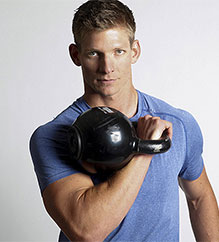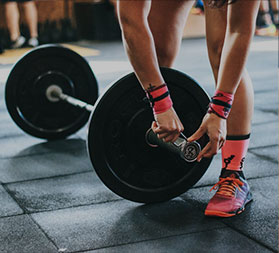FOR NETWORK
MEMBERS
NETWORK SUMMER 2017
The lowdown on Blood Flow Restriction training • FREE CEC/CPD • Let's compare Raw Vs Cooked • Building Ab, Core & Pelvic strength • Get clients short-term wins from long-term goals • So you want to operate multiple clubs? + LOADS MORE
ABOUT US
Trainers, athletes and serious clients alike are looking for the toughest, most brutally productive training techniques to spice up their workouts and provide a truly unique challenge for their body and mind. Think: one-arm push-ups, pistols, pull-ups, handstands, hanging levers and the like! If you want toeither for
Learn More
Great weekend, met lots of cool people and took away quite a bit. Thank you for the experience, and to you and your professional team for
making things seem


JENIFERR
Trainers, athletes and serious clients alike are looking for the toughest, most brutally productive training techniques to spice up their workouts and provide a truly unique challenge

JHON
Trainers, athletes and serious clients alike are looking for the toughest, most brutally productive training techniques to spice up their workouts and provide a truly unique challenge
FILEX
I just wanted to sincerely thank you for the opportunity to represent Precision Nutrition and the US at such an amazing event.


IGNITING
I just wanted to sincerely thank you for the opportunity to represent Precision Nutrition and the US at such an amazing event.
PASSION
I just wanted to sincerely thank you for the opportunity to represent Precision Nutrition and the US at such an amazing event.

Training for sports is essential for athletes to excel in their chosen sport. It involves a combination of physical, mental, and technical aspects that need to be developed to reach peak performance. In this article, we will explore the different components of training for sports and how they can help athletes achieve their goals.
Physical Training
Physical training is the most visible aspect of sports training. It includes activities such as running, lifting weights, jumping, and other exercises that improve strength, endurance, and agility. A well-planned physical training program can help athletes develop the skills they need to succeed in their sport.
Strength training is an essential part of physical training. It involves exercises that work on building muscle mass and increasing muscle strength. This type of training is beneficial for most sports, as it allows athletes to perform at a high level for a longer time.
Endurance training is another important component of physical training. It focuses on building an athlete's cardiovascular system, which allows them to perform at a high level for extended periods. Activities such as running, cycling, or swimming are common endurance training exercises.
Agility training is also important for many sports. It involves exercises that improve an athlete's ability to change direction quickly and move with speed and precision. Agility training exercises may include ladder drills, cone drills, and other drills that require quick movements.
Mental Training
Mental training is just as important as physical training in sports. It helps athletes develop the mindset they need to succeed in their sport. Mental training includes exercises such as visualization, goal-setting, and positive self-talk.
Visualization is a technique used by many athletes to prepare for competition. It involves creating a mental image of oneself performing at a high level. This technique helps athletes develop confidence in their abilities and visualize success.
Goal-setting is another important aspect of mental training. It involves setting achievable goals for training and competition. By setting goals, athletes can stay motivated and focused on their training.
Positive self-talk is also essential for mental training. It involves replacing negative thoughts with positive ones. By focusing on positive thoughts, athletes can improve their self-confidence and reduce anxiety.
Technical Training
Technical training focuses on developing the specific skills required for a particular sport. This type of training is essential for athletes who want to excel in their sport. Technical training includes exercises such as shooting, dribbling, and passing in basketball, for example.
Technical training requires a lot of repetition to master the specific skills required for a particular sport. Athletes must be patient and persistent in their technical training, as it may take time to develop the skills required for their sport.
Nutrition
Nutrition is an essential component of sports training. Athletes must eat a balanced diet that provides them with the nutrients they need to perform at a high level. A balanced diet should include a variety of fruits, vegetables, whole grains, lean protein, and healthy fats.
Hydration is also critical for athletes. They should drink plenty of water before, during, and after training sessions and competitions to stay hydrated. Dehydration can lead to fatigue, cramps, and reduced performance.
Rest and Recovery
Rest and recovery are essential components of sports training. Athletes need time to rest and recover after intense training sessions and competitions. Adequate rest allows the body to recover and repair itself, reducing the risk of injury.
Stretching and massage can also help athletes recover after training and competition. These techniques help to reduce muscle soreness and improve flexibility.
Conclusion
Training for sports is a complex process that requires a combination of physical, mental, technical, nutritional, and recovery components. Athletes who follow a well-planned training program can improve their performance and achieve their goals. By focusing on physical training, mental training, technical training, nutrition, and recovery, athletes can improve their skills, increase their confidence, and perform at a high level in their chosen sport.
It's important to note that training for sports is not a one-size-fits-all approach. Each athlete's training program should be tailored to their individual needs, goals, and physical abilities. It's crucial to work with a coach or trainer who can design a program that suits an athlete's unique requirements.
Moreover, training for sports requires dedication, hard work, and discipline. Athletes must commit themselves to their training program and stay focused on their goals. They must also be patient and persistent, as progress may not always be immediate.
Finally, it's essential to recognize that training for sports is not just about winning. While winning is certainly a desirable outcome, sports training also teaches valuable life skills such as teamwork, resilience, and perseverance. Athletes who approach their training with the right attitude and a growth mindset can achieve success not just in sports but in life as well.
In conclusion, training for sports involves a combination of physical, mental, technical, nutritional, and recovery components. Athletes who follow a well-planned training program tailored to their individual needs and goals can improve their performance and achieve their full potential. By focusing on dedication, hard work, discipline, patience, and a growth mindset, athletes can become successful in their sport and in life.







